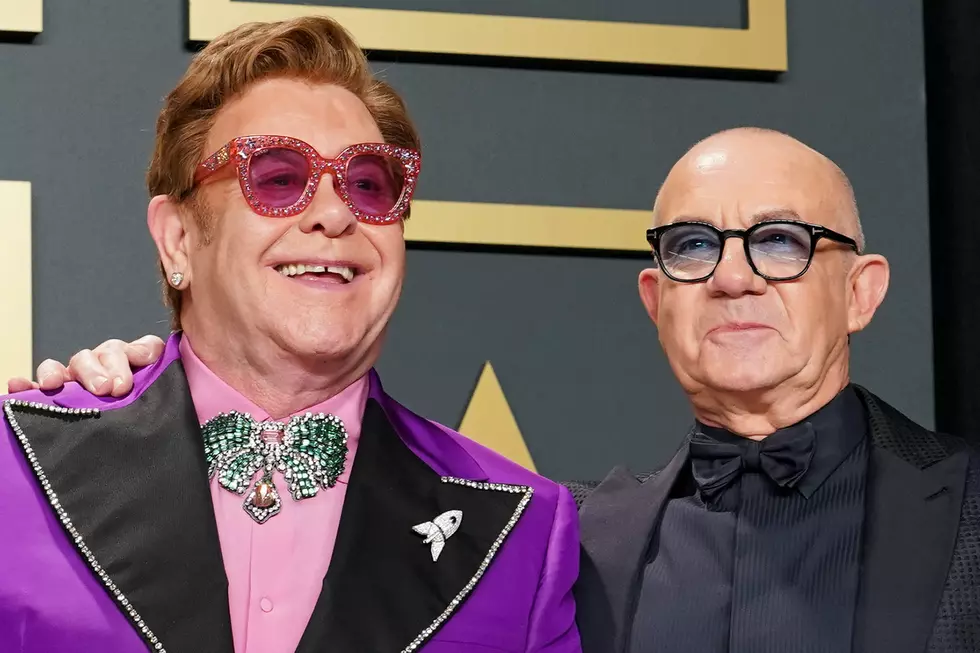
How Elton John Matured on ‘Madman Across the Water’
Elton John was a rock star on the rise when he started working on his fourth studio album, Madman Across the Water, in early 1971 — and an artist determined to change course with his music.
Working at a torrid pace throughout 1969 and 1970, John and his songwriting partner Bernie Taupin had released a slew of recordings, and seen John's commercial profile rise steadily along the way. But as evidenced by his first live album, 11-17-70, there was something of a disconnect between his stage presence and his studio sound, owed partly to the fact that his live band — bassist Dee Murray and drummer Nigel Olsson — weren't the core combo he used when it came time to put his songs to tape.
That decision wasn't John's. Like a lot of young performers, he hadn't yet been able to claim complete creative control over his records, and neither his label nor his producer, Gus Dudgeon, were convinced John's band were a better fit for the material than professional session players.
When he set about working on that fourth studio album in early 1971, John was only able to work them in for one cut — a situation that, while undeniably frustrating to the strong-willed star, paid future dividends when it came time to record the title track.
Titled "Madman Across the Water," the song had originally been recorded and discarded during the sessions for John's 1970 Tumbleweed Connection LP, with guitarist Mick Ronson sitting in. For the sessions that produced the new version, Dudgeon recommended hiring a far less famous player: Davey Johnstone, who'd come across Dudgeon's mixing desk when he produced an album for Johnstone's old band Magna Carta.
John took Dudgeon's suggestion, bringing Johnstone into the fold for a handful of tracks on the Madman Across the Water LP — and rounding out his classic band lineup in the bargain.
Listen to Elton John Perform 'Tiny Dancer'
If John's band had yet to truly come together, his songwriting maturity was developing by leaps and bounds. Bolstered by Paul Buckmaster's distinctive string arrangements, the Madman record's nine tracks blend a baroque aesthetic with strains of blues, rock, and a dash of country — a sound that would really start to see refinement in the albums John released over the decade to come, but still sounded remarkably assured in its early form. Given that he was on his third album in less than a year, it was also impressively deep with strong material.
In fact, although Madman Across the Water wasn't a huge sales success for John — it extended a commercial lull for him in the U.K., topping out at No. 41, and proved another solid Top 10 hit for him in the States — the album contained some of his more enduring songs, even if they weren't his biggest hit singles. Opening track "Tiny Dancer" would go on to become a perennial live favorite and one of his signature compositions, while "Levon" cracked the Top 30 on its way to its own exalted status in a distinguished catalog.
Still, all that said, John wasn't terribly fond of the end result. "I'd say I've got rid of three years of shit," John told Sounds in early 1972. "That might sound strong, but there were three years of songs and back catalogue which we've finally come to an end of. I'd wanted to do this kind of uncluttered album when we cut Madman, in the end it was cut because we had to do an album, it was very painful. It was done under pressure and really tortured out of us, and I think it's remarkable that it turned out as well as it did."
With his next album, 1972's Honky Château, John was finally at the point where he could start using his own band, taking another degree of control over a career that dominate pop and rock radio for years to come. Whether or not anyone understood it at the time, Madman Across the Water served to close a chapter of sorts.
"I still like that album, but really Bernie and I had hit a very odd situation when we came to cut it," John reflected. "We had written only about eight songs that year, working on them separately, and it came to the point that there was nothing to fall back on if we'd hated one of the tracks. Normally we write about 25 numbers a year so you can tell the sort of state we were in. So Madman wrapped up the tail end of our writing, and it was the very last album of its kind we'll ever do."
The Best Song From Every Elton John Album
Elton John's Terrifying First U.S. Concert
More From Ultimate Classic Rock









